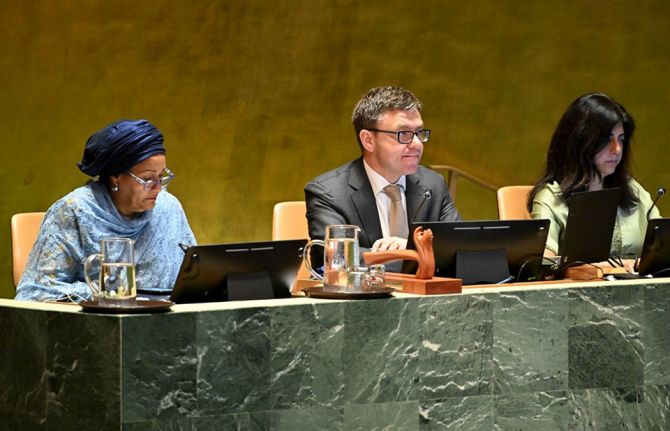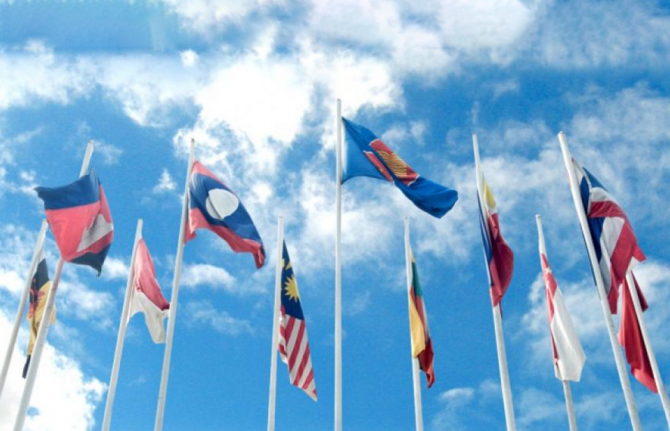
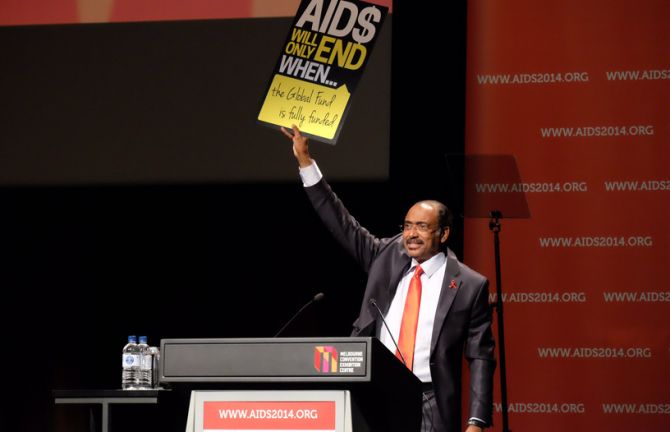
UNAIDS Executive Director Michel Sidibé speaking at the opening ceremony of the AIDS 2014 conference in Melbourne, Australia, 20 July 2014.
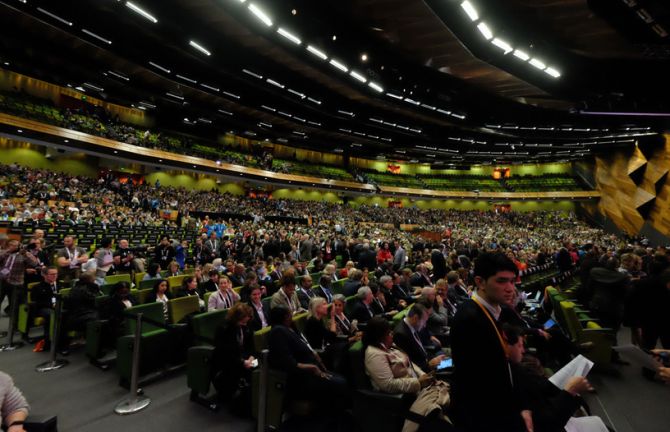
Opening ceremony of the AIDS 2014 conference in Melbourne, Australia, 20 July 2014.
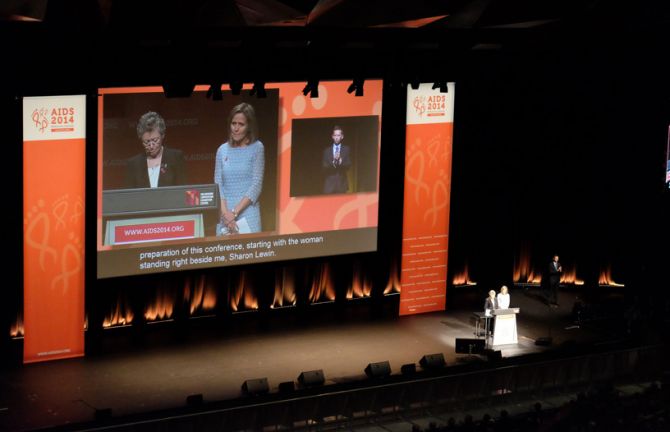
Opening ceremony of the AIDS 2014 conference in Melbourne, Australia, 20 July 2014.
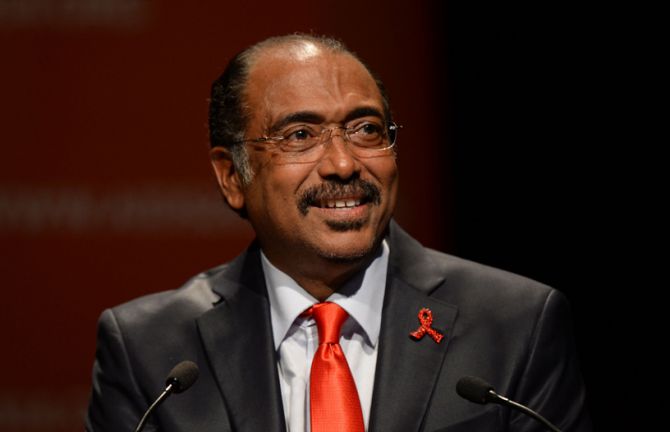
Opening ceremony of the AIDS 2014 conference in Melbourne, Australia, 20 July 2014.
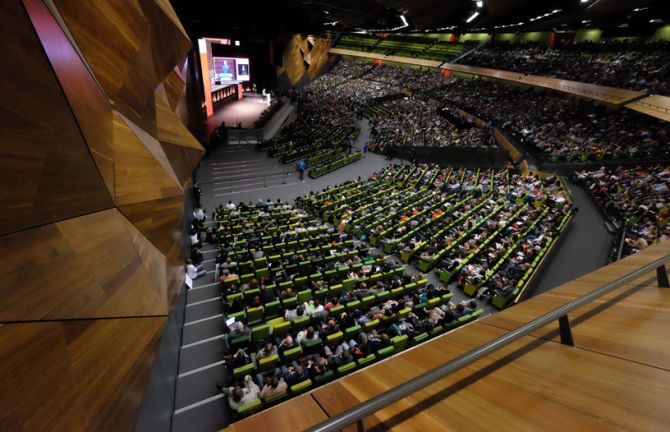
Opening ceremony of the AIDS 2014 conference in Melbourne, Australia, 20 July 2014.
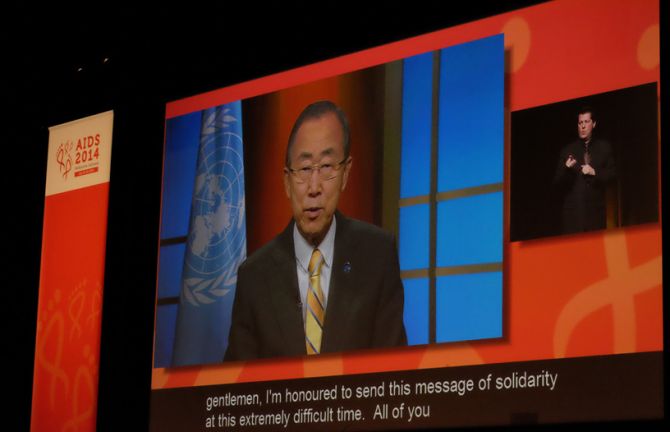
Opening ceremony of the AIDS 2014 conference in Melbourne, Australia, 20 July 2014.
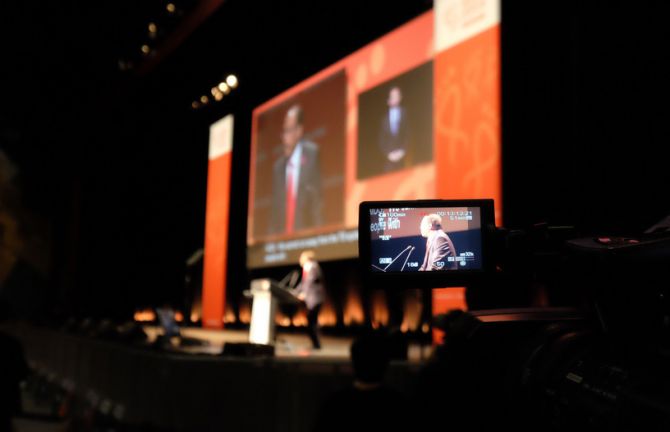
Opening ceremony of the AIDS 2014 conference in Melbourne, Australia, 20 July 2014.
Feature Story
Opening ceremony honours missing delegates and calls for ending AIDS by 2030
20 July 2014
20 July 2014 20 July 2014The 20th International AIDS Conference opened in Melbourne, Australia, on 20 July 2014 with a moving and powerful range of statements from leading figures in the response to HIV. The ceremony was dedicated to the memory of the victims lost in the international tragedy—several of whom were on their way to participate in AIDS 2014.
Nobel laureate and President of the International AIDS Society Professor Françoise Barré-Sinoussi paid tribute to the friends and colleagues who died. “We dedicate AIDS 2014 to them, we will remember their legacy and keep them in our hearts,” she said.
Michel Sidibé, Executive Director of UNAIDS, gave an inspiring address calling for an end to the AIDS epidemic by 2030 and stressed the need for a new “catch-up” plan to leave no one behind. “Now, more than ever, we must concentrate our limited resources on where most infections occur and on where most people die,” he said. “The world needs a new “catch-up” plan for the 15 countries that account for 75% of new HIV infections.”
UNAIDS Goodwill Ambassador and Master of Ceremony James Chau guided the speakers through the special memorial opening session. He extended a warm welcome to Ayu Oktariani, a young woman living with HIV from Indonesia, who spoke passionately about the challenges she faces in her daily life, “Living with HIV is not easy,” she said. “It's not only about HIV; it's about people’s judgement of my sexual behaviour.” She talked about discriminatory attitudes of health-care workers and the lack of information on sexual and reproductive health. “Many of us have HIV because we did not have the means or information to protect ourselves,” she added.
Co-chair of AIDS 2014 Professor Sharon Lewin told the participants how important the conference was to Australia and the world. A sentiment echoed by the Premier of the State of Victoria, Denis Napthine, “This conference is about stepping up the pace, making a difference and making the world a better place,” he said.
Aboriginal Elder Joy Wandin Murphy extended a warm welcome to Australia to all the participants. She talked about the country’s past struggles and stressed the importance of tolerance and acceptance. “If we understand each other we can live in harmony, and, if we do, we can eliminate stigma and discrimination so we can all live together.”
The Jonathan Mann memorial lecture was given by Justice Michael Kirby, who strongly emphasized the importance of equality and justice for all. He talked about the impact of punitive laws and the devastating impact they can have on people living with and affected by HIV. He stressed that, “Law and policy must be made part of the solution and not part of the problem for AIDS.”
The United Nations Secretary-General Ban-Ki moon and the Prime Minister of Australia Anthony Abbott delivered video messages expressing their sorrow for all who died on flight MH17 and encouraged participants to take the opportunity provided by the conference to advance the response and reach the end of the AIDS epidemic.
Deputy Prime Minister of Australia Warren Truss stated that Australia will pursue an ambitious commitment to ending AIDS as part of the post-2015 agenda. The event was closed by a concert from Dan Sultan.
The 20th International AIDS Conference will run from 20 to 25 July in Melbourne, Australia. The delegates will review and present the latest scientific findings as well as the social and structural innovations and challenges in the AIDS response.

